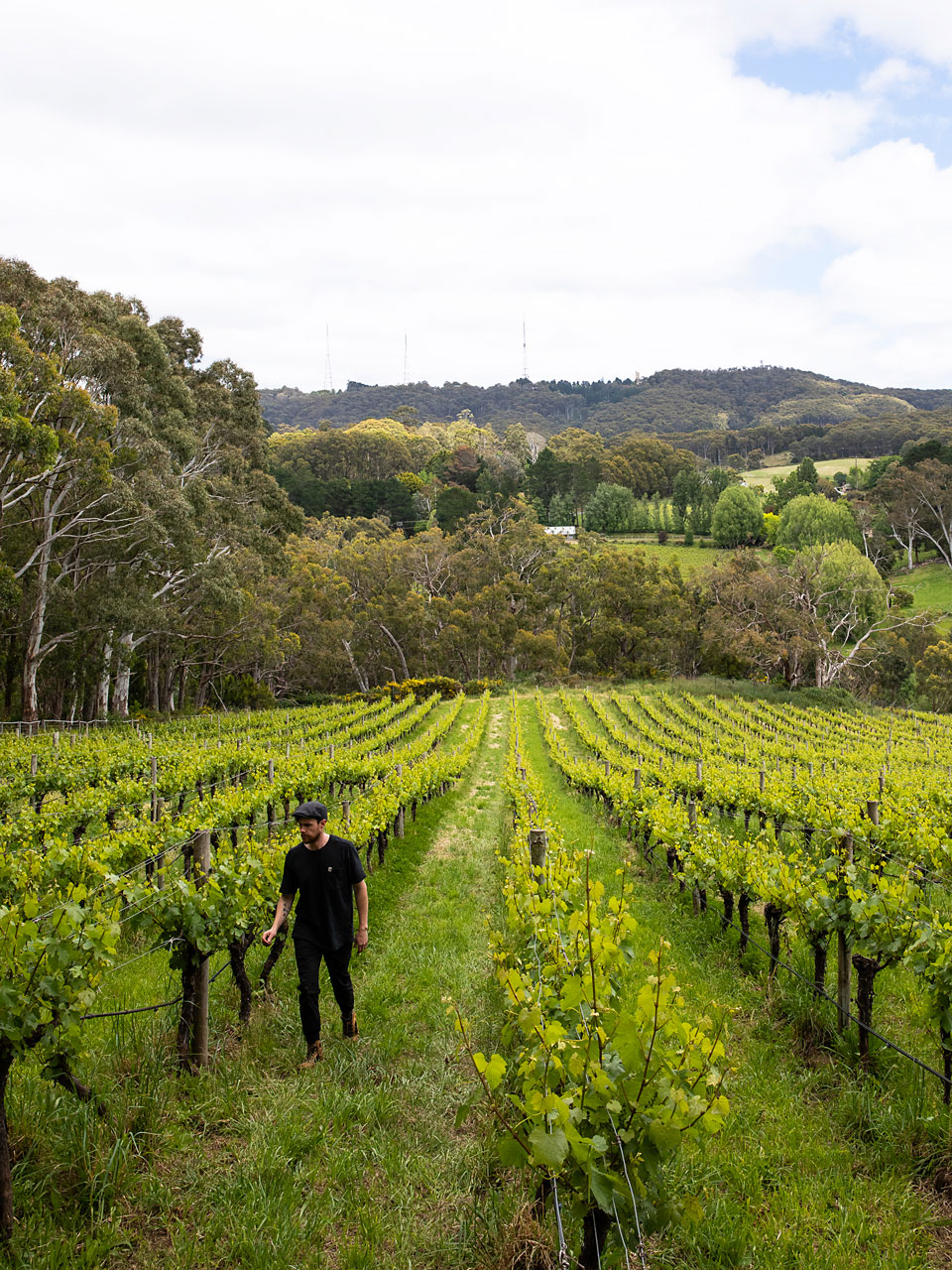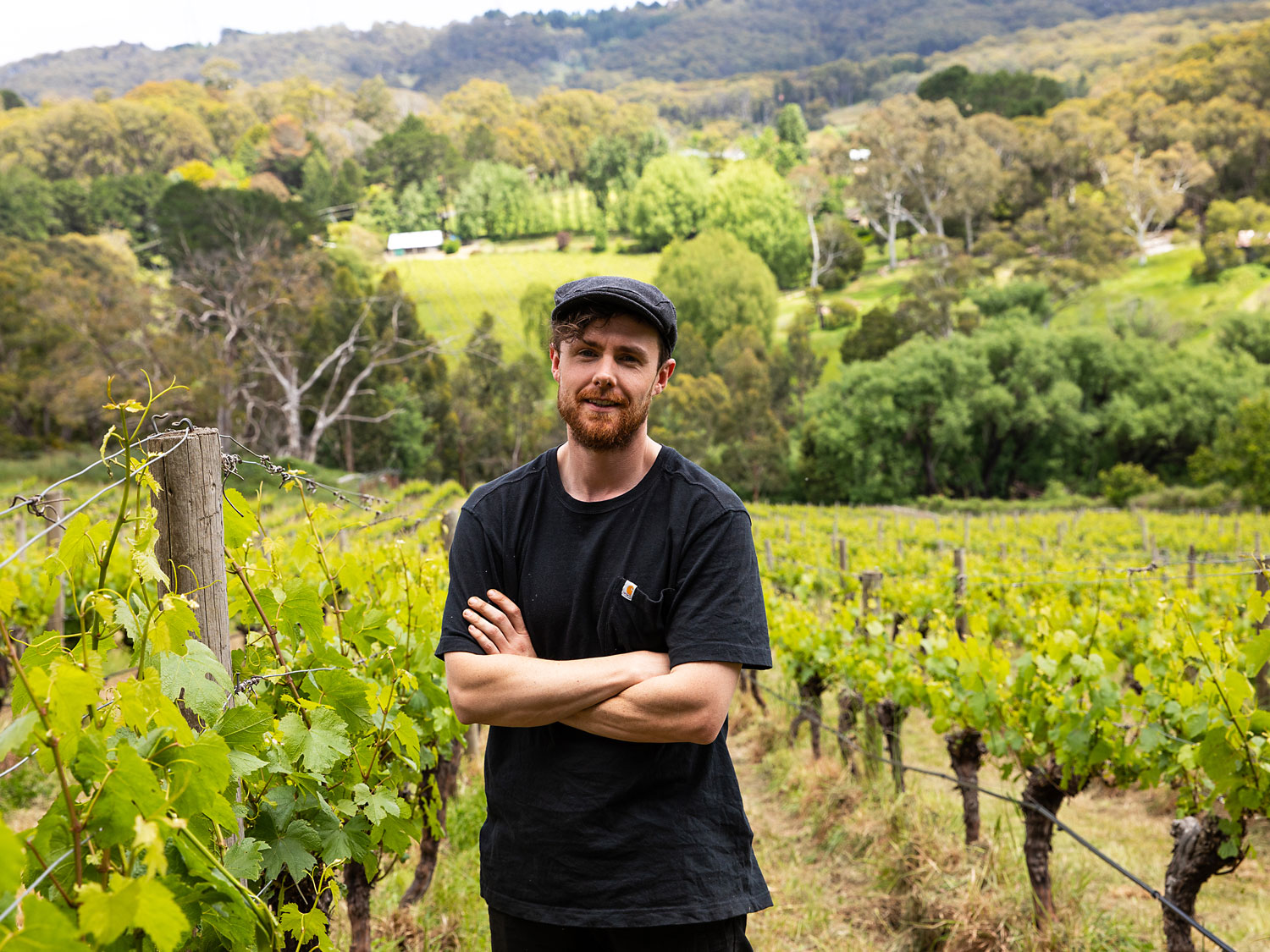James Ellis’s Ada Wine Co. is based in the Adelaide Hills, but he sources organically grown fruit from across prime South Australian regions where particular varieties excel: McLaren Vale for grenache, Eden Valley for riesling, and chardonnay and pinot noir from the Hills. His approach is built around a lo-fi approach, with no adds apart from minimal sulphur and no fining or filtration.
Ada (short for Adelaide) Wine Co. was launched in 2019 with just three tonnes of fruit from the 2018 vintage. “With Ada, the primary objective is to highlight site and varietal complexities and the nuances that come with this,” says Ellis. ‘Drinkability is also a key objective in making these wines. Thus, the wines are objectively raw varietal expressions of the place in which they are grown and take influence from the vintage. I’m not aiming to make wines that are completely consistent from year to year but prefer to allow each wine to tell a story of the vintage and the place in which it was grown.”
Ellis completed his degree in viticulture and oenology at the University of Adelaide in 2012, then taking a job for Treasury Wine Estates as a viticulture technical officer in the Barossa. The Adelaide Hills followed in 2015 as an assistant vineyard manager, then a role in the Hunter saw him work with both vines and wine. Stints at Jim Barry in the Clare, for a large Riverland maker, then at Deviation Road with Kate Laurie preceded a move to work with Gareth Belton of Gentle Folk, which is where he currently works along with making his own wines there. “I still make the wines in Gareth’s shed using the same philosophies,” says Ellis.
For Ellis, although he has no vineyard of his own, there are some non-negotiables in terms of farming. “In pursuit of this expressiveness, I work exclusively with organic and biodynamic growers,” he says. “In the winery, the approach is very much lo-fi. In the cellar, wild yeast and malolactic bacteria are utilised to complete fermentation and nothing is added or subtracted from the wines other than minimal amounts of sulphur utilised post malolactic fermentation, and if needed prior to bottling.”
The Ada portfolio now consists of a skinsy Eden riesling, a classic Adelaide Hills chardonnay and pinot noir pair, and two expressions of McLaren Vale grenache, one that’s whipped off skins after five days to make a light chillable red, and the other that stays on for three weeks. “The wines are intended to be pure expressions of the sites from which they are sourced,” says Ellis. “I take parcels of fruit from many regions around South Australia because each region is suited to a different variety. We are still very small in terms of production, but our wines are made with love and a burning passion that we hope comes across in the final product.”
Though he sources fruit from other region, Ellis credits the Adelaide Hills for inspiring him through the wealth of diverse winemaking styles. “All this culminates to a beautiful melting pot of ideas and experimentation,” he says. “In our community we like to share knowledge, ideas and experiences which is great point of inspiration. Working with Gareth Belton at Gentle Folk in particular has given me the confidence to trust my decision-making and to push myself to continually learn and develop new techniques.”
Ellis says that taking fruit from different regions and different varieties presents challenges each year due to the windows from picking at the optimal time is varied for each site, especially given that he never adds acid. “The climate is as different as the soil, and so I need to be very proactive come vintage time to ensure that the grapes are picked at the best time to ensure the resulting wine is its best and most vibrant self. As each vintage rolls on, I’ve gained the confidence and knowledge to continually adjust the picking window for each parcel of fruit to maximise flavour without sacrificing freshness.”
Ellis’s ambitions for Ada are modest in size, though he will take on new growers who farm sympathetically, while seeking to retain existing growers. “I don’t see Ada growing substantially, as I’d like to keep everything in my complete control and keep standards as high as possible,” he says. “I would love to see more single site grenache in the portfolio as time goes by, as this variety is a particular favourite of mine.”




